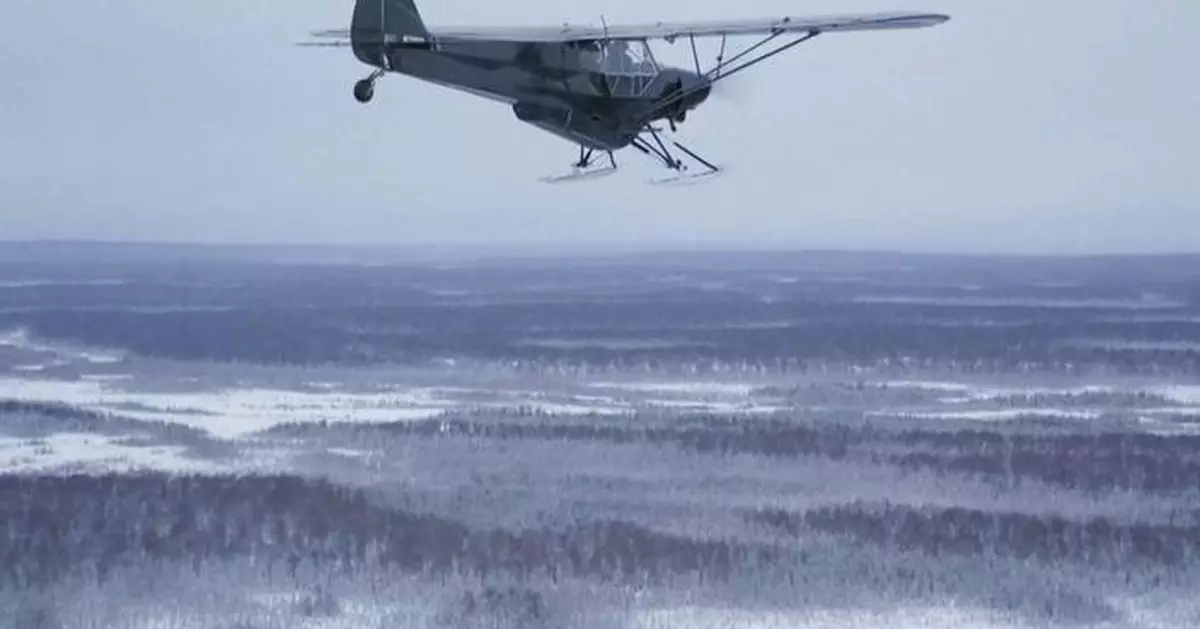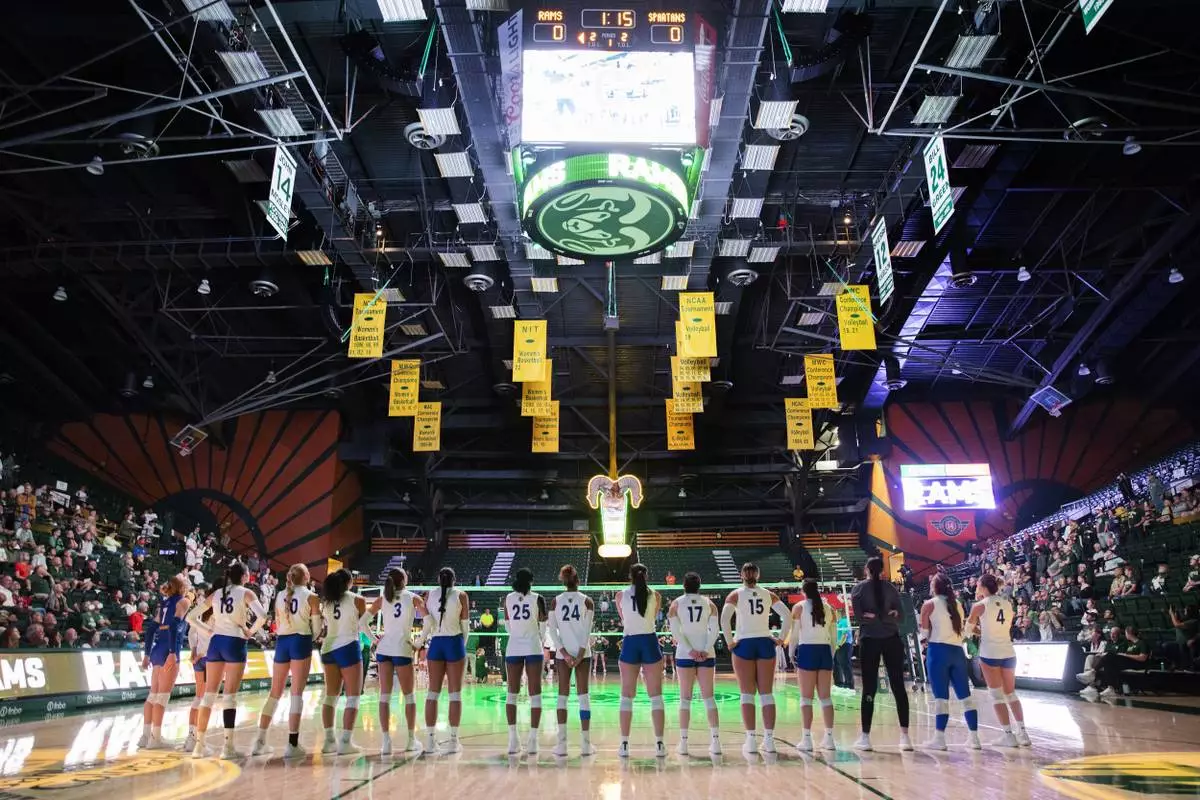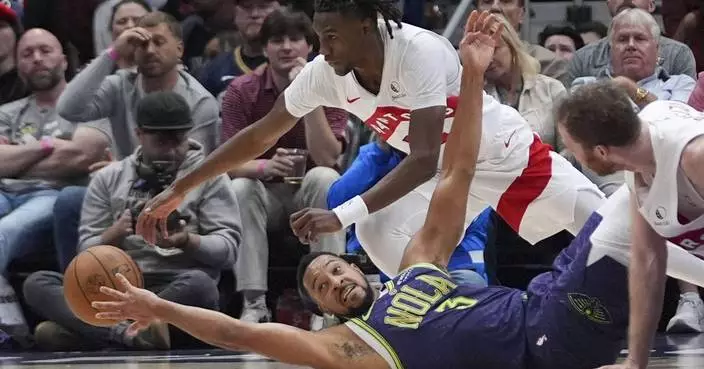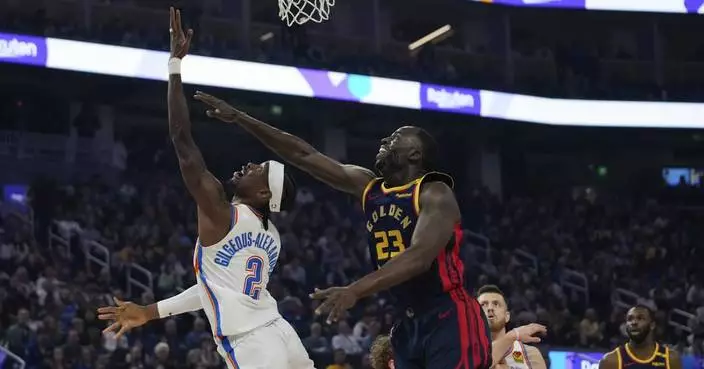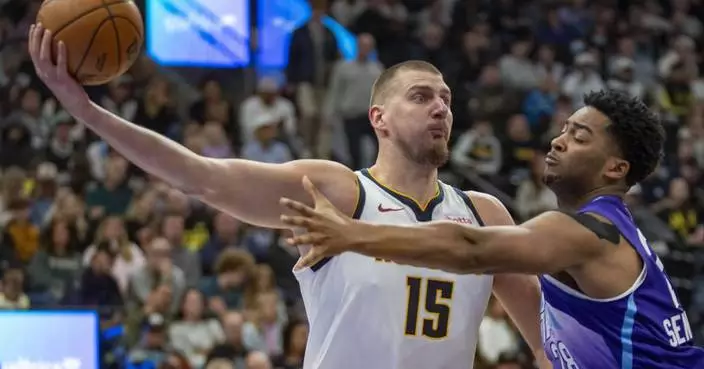ANCHORAGE, Alaska (AP) — In the remotest reaches of Alaska, there’s no relying on DoorDash to have Thanksgiving dinner — or any dinner — delivered. But some residents living well off the grid nevertheless have turkeys this holiday, thanks to the Alaska Turkey Bomb.
For the third straight year, a resident named Esther Keim has been flying low and slow in a small plane over rural parts of south-central Alaska, dropping frozen turkeys to those who can't simply run out to the grocery store.
Alaska is mostly wilderness, with only about 20% of it accessible by road. In winter, many who live in remote areas rely on small planes or snowmobiles to travel any distance, and frozen rivers can act as makeshift roads.
When Keim was growing up on an Alaska homestead, a family friend would airdrop turkeys to her family and others nearby for the holidays. Other times, the pilot would deliver newspapers, sometimes with a pack of gum inside for Keim.
Her family moved to more urban Alaska nearly 25 years ago but still has the homestead. Using a small plane she had rebuilt with her father, Keim launched her turkey delivery mission a few years back after learning of a family living off the land nearby who had little for Thanksgiving dinner.
“They were telling me that a squirrel for dinner did not split very far between three people," Keim recalled. “At that moment, I thought ... ‘I’m going to airdrop them a turkey.'”
She decided not to stop there. Her effort has grown by word of mouth and by social media posts. This year, she's delivering 32 frozen turkeys to people living year-round in cabins where there are no roads.
All but two had been delivered by Tuesday, with delivery plans for the last two birds thwarted by Alaska’s unpredictable weather.
Among the beneficiaries are Dave and Christina Luce, who live on the Yentna River about 45 miles (72 kilometers) northwest of Anchorage. They have stunning mountain views in every direction, including North America's tallest mountain, Denali, directly to the north. But in the winter it's a 90-minute snowmobile ride to the nearest town, which they do about once a month.
“I’m 80 years old now, so we make fewer and fewer trips," Dave Luce said. “The adventure has sort of gone out of it.”
They've known Keim since she was little. The 12-pound (5.44-kilogram) turkey she delivered will provide more than enough for them and a few neighbors.
“It makes a great Thanksgiving,” Dave Luce said. “She’s been a real sweetheart, and she’s been a real good friend.”
Keim makes 30 to 40 turkey deliveries yearly, flying as far as 100 miles (161 kilometers) from her base north of Anchorage toward Denali's foothills.
Sometimes she enlists the help of a “turkey dropper” to ride along and toss the birds out. Other times, she’s the one dropping turkeys while her friend Heidi Hastings pilots her own plane.
Keim buys about 20 turkeys at a time, with the help of donations, usually by people reaching out to her through Facebook. She wraps them in plastic garbage bags and lets them sit in the bed of her pickup until she can arrange a flight.
“Luckily it’s cold in Alaska, so I don’t have to worry about freezers,” she said.
She contacts families on social media to let them know of impending deliveries, and then they buzz the house so the homeowners will come outside.
“We won’t drop the turkey until we see them come out of the house or the cabin, because if they don’t see it fall, they’re not going to know where to look,” she said.
It can be especially difficult to find the turkey if there’s deep snow. A turkey was once missing for five days before it was found, but the only casualty so far has been a lost ham, Keim said.
Keim prefers to drop the turkey on a frozen lake if possible so it's easy to locate.
“As far as precision and hitting our target, I am definitely not the best aim,” she joked. “I’ve gotten better, but I have never hit a house, a building, person or dog.”
Her reward is the great responses she gets from families, some who record her dropping the turkeys and send her videos and texts of appreciation.
“They just think it’s so awesome that we throw these things out of the plane,” Keim said.
Ultimately, she hopes to set up a nonprofit organization to solicit more donations and reach people across a bigger swath of the state. And it doesn’t have to stop at turkeys.
“There’s so many kids out in the villages," she said. “It would be cool to maybe add a stuffed animal or something they can hold.”
Bohrer reported from Juneau, Alaska.
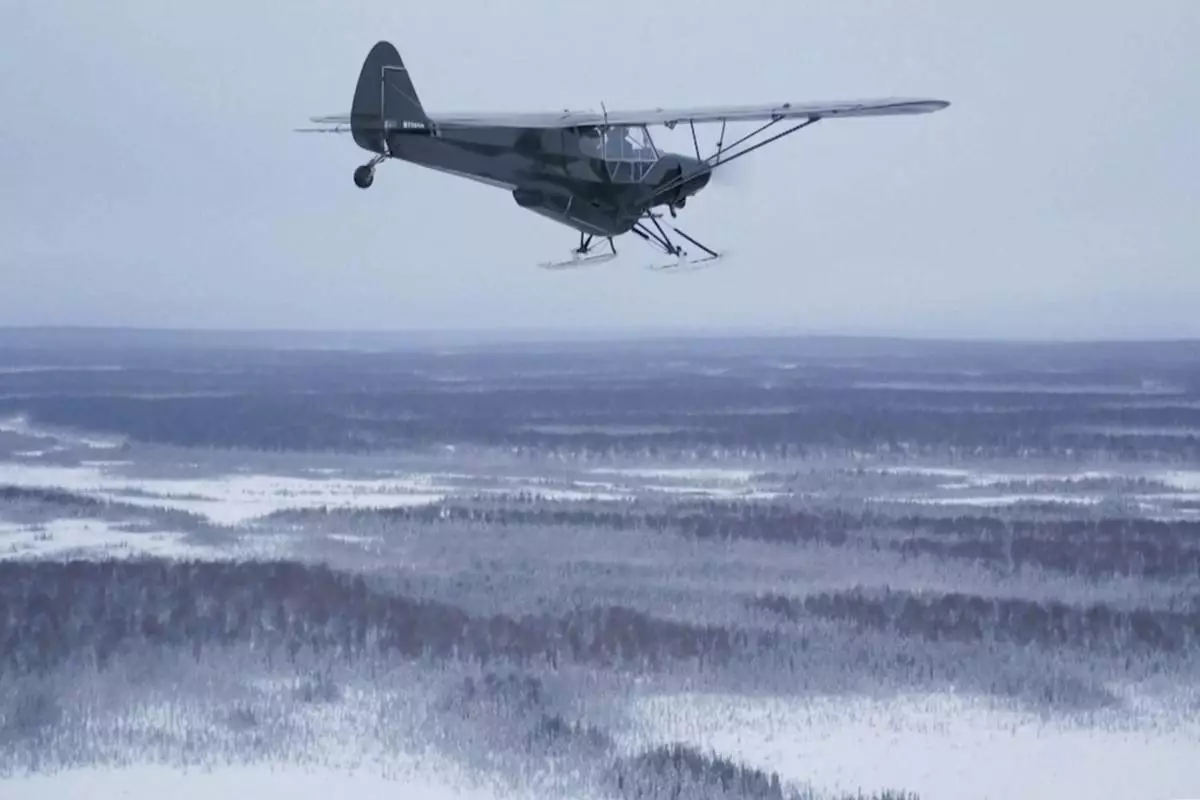
This image taken from video provided by Mountain Mind Media/Alaska Gear Company shows a plane from Alaska Turkey Bomb, which was started by Esther Keim to air drop frozen turkeys for Thanksgiving to people living in remote rural Alaska, flying in November 2024, in Alaska. (Mountain Mind Media/Alaska Gear Company via AP)


